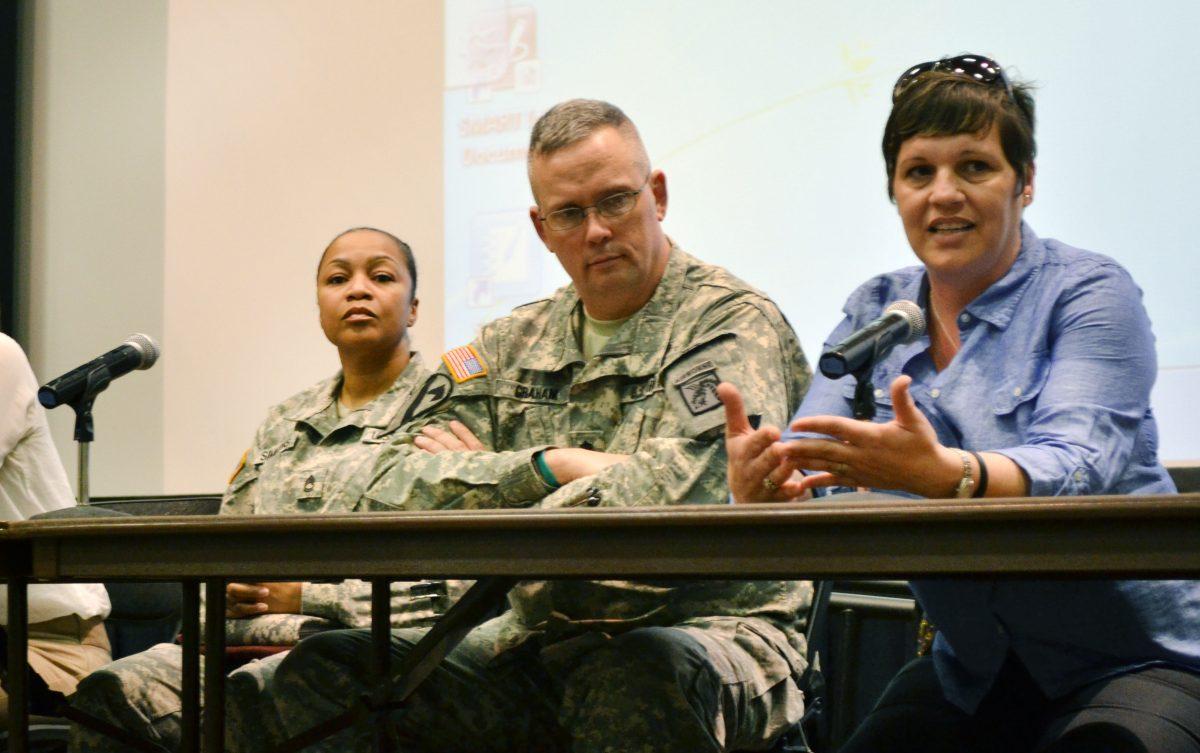N.C. State’s honors program engaged students and faculty on the rising issue of sexual assault in the military. The event featured a screening of the documentary film The Invisible War by Kirby Dick followed by a discussion panel of military personnel from U.S. Army base Ft. Bragg.
Comprising nine experts, the panel spoke on questions about the concern of military sexual assault and trauma.
The panel included Jenn Scott, N.C. State’s Women’s Center Assistant Director for Interpersonal Violence Prevention, Col. Marilyn Brooks, head of Ft. Bragg’s Sexual Harassment/Assault Response and Prevention Program, Kelly Taylor, Ft. Bragg emergency room nurse supervisor, Deanne Gerdes, director for the Fayetteville Rape Crisis Volunteer Community Center, SFC Simmons, Cirby Graham, Sgt. Kellie Berg, supervisor Fayetteville police department’s Special Victims Unit & Cyber Crime, Sgt. Christian Hall, member of the N.C. National Guard, Paul Daily, Special Victims Unit criminal investigator.
All of the panelists agreed that it’s the bond of loyalty being betrayed in a military sexual assault case that goes against the moral values of any section of the armed forces.
“The word ethos is a value we live by,” Hall said. “We live by our morality and what is happening is a family issue between our said brothers and sisters in arms. The equivalent to what is happening is incest.”
The facts align with the panelists’ views, as 80 percent of sexual assault victims, in military cases, don’t report their experiences.
25 percent of military personal state that their reasons for not reporting the crime are due to their superior being the one who raped them.
According to the panelists, the idea of rape being “just another occupational hazard in the military” creates a stigma for those wishing to help victims.
“Rape is not an occupational hazard,” Hall said. “It’s not something that comes along with it it’s a crime – a vicious one.”
Students and faculty alike repeatedly questioned the panel on the steps that were being taken to combat the invisible war.
“We can change the policies and systems,” Daily said. “It’s changing the people that’s our biggest struggle.”
The panel reaffirmed the film’s message explaining that what victims of sexual assault, both male and female, just need belief in their stories and themselves.








